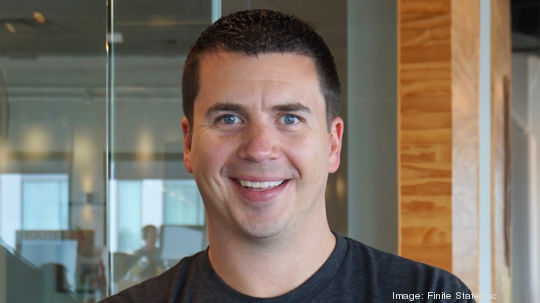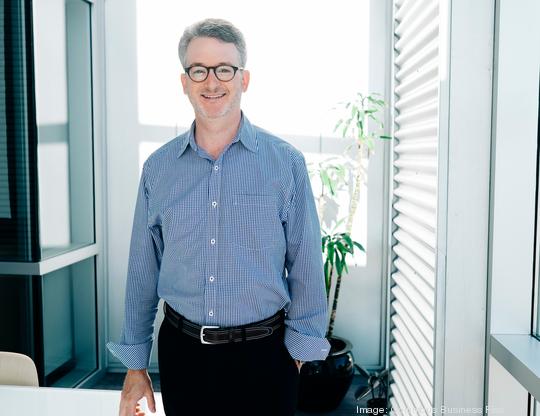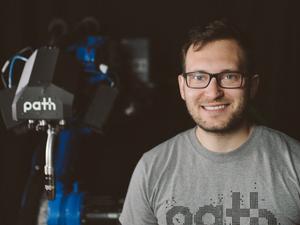A record-smashing year of Ohio technology investments brought a new phenomenon to Columbus.
Big-name firms such as New York City’s Goldman Sachs led huge rounds – $30 million, $60 million, $100 million, $400 million – in tech companies that weren’t asking.
“They reached out,” Sean Lane, founder and CEO of Olive AI Inc., said of the Austin and San Francisco firms leading its July $400 million round, the largest in state history.
“I didn’t need to go fly out to Sand Hill Road,” the Silicon Valley address of legendary VC firms, said Matt Wyckhouse, founder and CEO of Finite State Inc., which raised $30 million in August.
The statewide tech sector for the first time has surpassed $2 billion in outside investment – with two months to go in the year, according to quarterly data from PitchBook and the National Venture Capital Association.
Central Ohio has seen five and Cincinnati two mega-rounds greater than $100 million.
Nearly half – $912 million – has gone to companies in Columbus-based Drive Capital LLC’s portfolio, including Olive and Finite State.
The venture-backed community in Columbus is unrecognizable compared with 10 or even five years ago. But records are falling everywhere, so Ohio still has yet to crack 1% of U.S. venture investing, according to NVCA/PitchBook.
Mark Kvamme and Chris Olsen, veterans of Sequoia Capital, founded Drive in 2012. It’s built a portfolio of more than 100 companies; the 16 based in Central Ohio have created about 3,000 jobs.
“In the past they were saying, ‘You’re crazy for doing that,’” Kvamme said in a July interview. “Now they’re saying, ‘What’s going on?’
“Our hypotheses on what we could get done here, you’re now seeing it beginning to work.”

Most of this year’s haul is pouring in from out of state, including names such as Tiger Global, Silicon Valley Bank, Shopify, Google, even Sequoia.
“They’re starting to see great companies are being built in the city of Columbus,” said Jeff Schumann, co-founder and CEO of Aware, which just closed a $60 million pre-emptive round led by Goldman Sachs. “Now they’re really paying attention.”
In the past, those big-check investors would pull their Ohio companies closer to them in California or Boston.
“I love that that’s not part of the conversation anymore,” Schumann said. “That’s a tribute to the fact that there’s been great success here.”
Olive last year adopted a distributed workforce model as it grows toward 1,600 employees around the country. Investors have not pressured Lane to move the home base from Columbus.
“Silicon Valley is an idea, and it can happen anywhere,” Lane said in July. “Columbus is a major city and is a great place to grow a massive company, and we’re showing that.”
Three times Columbus has fulfilled Kvamme’s 2015 prediction that the state would produce a tech company worth $1 billion. Now in interviews and speeches, he’s foretelling a $100 billion company within a decade.
“We have the opportunity to be the technology business center of the Midwest,” he said. “The big question is: Are we one of the top in the country?”
‘Night and day’
Wyckhouse graduated Ohio State University in 2002 and started his career at Battelle while fellow graduates in engineering or sales felt they had to leave the state for opportunities. Since then, he’s watched an “incredible” transformation of entrepreneurship.
“It’s a completely different landscape in Columbus,” he said. “If you go back 10 years, Pittsburgh should have beaten us. It’s been a really nice combination of investment and foresight and intentionality.”

Bill Baumel moved to Columbus from Silicon Valley five years ago to lead Ohio Innovation Fund, created by public state universities.
“Things are night and day,” he said. “You have company after company in Columbus that when I got here, there weren’t those types of companies around.”
A 2017 Ohio Innovation Fund intern left the state for SalesForce, Baumel said, but now has moved back to work in sales at Aware.
Basis Set Ventures wrote its first Ohio check, and largest ever for a seed round, in 2018 for Path Robotics Inc., just before the startup moved to Columbus from Cleveland. The Silicon Valley firm also joined Path’s $56 million round this year.
Once focused on the Bay Area, Basis Set is evaluating startups across the country, including several in the Midwest.
“Last year has changed the game completely,” founder Xuezhao Lan said.
“Once you’ve been there, you feel it’s actually much easier to invest there,” she said. “One big exit changes the reputation.”
‘In it for the long haul’
Rounds and valuations are soaring in part because proven returns in the VC world are attracting new types of deep-pocketed investors, such as corporations and family trusts, according to NVCA/PitchBook.
A “properly constructed” venture portfolio quadruples value over a fund’s typical 10-year lifespan, according to a Cambridge Associates report on rising family and corporate VC investment. In that same time, a stock with 7% annualized returns would triple.
VC returns also are predicated on the assumption that 80% of the portfolio will fail, and a few blockbusters will IPO or be acquired at many multiples of total capital raised.
For example, Dublin-based Updox had taken on only $12.5 million in outside investment since a seed round; it was acquired last year for $143 million.
That can mean a lot of pressure for a company such as Olive, which has raised nearly $850 million since 2013.
“The investors I’ve chosen are in it for the long haul,” Lane said.”
Not every company needs venture backing and not every founder wants to give up too much ownership.
“All venture capital allows you to do is satisfy market demand faster,” Kvamme said.
“It becomes harder to hire the people you need and invest ahead if you are relying on bootstrapping,” Wyckhouse of Finite State said.
‘Feet on the ground’
Even as the volume of capital grows in the region, investors and founders say there’s never enough.
“We need compatriots to come out here and do this,” Kvamme said. “We’ve got to continue the momentum.”
As the region’s tech companies hit mature stages or get acquired, that spawns a new crop of entrepreneurs seeking seed and later funding.
“One or two resident Ohio PE or VC funds can’t carry the water for the entire state,” said Steve Baker, head of private equity for Cincinnati-based Fort Washington Capital Partners Group, which manages the Ohio Capital Fund for the state Department of Development.
“There does need to be more professional venture capital and private equity investors, feet on the ground looking for opportunities.”
The need is especially acute at earlier stages – to build companies to the point where they attract a Drive or Sequoia. Several funds have launched this year focused on access and inclusion. But all say they’d like even more.
“The pre-seed stage is one that can be overlooked, but it’s spawned some really great companies here in the region,” said Tom Walker, CEO of Rev1 Ventures. “Companies that grow to be $100 million or $500 million (in value) are just as important.”

Rev1 launched a $20 million fund in June for early startups, and this month added a $10 million fund for the even earlier pre-seed stage.
“That’s money that entrepreneurs have a very difficult time finding,” Walker said.
“Typically, you would be talking to friends and family at that stage.”
New funds including Rev1’s, Zell Capital and Overlooked Ventures are for those whose friends and family can’t easily part with $50,000.
“This opens the door for a broader range of entrepreneurs in your community to test and grow new ideas,” Walker said.
Michael Redd and John Weaver started 22 Ventures LLC in 2019 as a counterpoint to the traditional VC economics that expect failure. The Gahanna firm, with an undisclosed fund size, surrounds entrepreneurs with support to build solid small middle-market job creators.
“We need to stop comparing ourselves to some of these other ecosystems,” said Weaver, an attorney who specializes in startups.
“We have so many things going for us as a market and a region. Entrepreneurship is thriving in Central Ohio, and we need to look at another metric other than venture capital investment.”
Columbus differs from other tech scenes in the city’s mutual support structure, Schumann of Aware said. Far from cutthroat, local CEOs frequently seek and offer advice.
“The community here really is rallying together,” he said. “Sean (Lane) really wants us to succeed as much as we want to see Sean and Olive succeed.”






